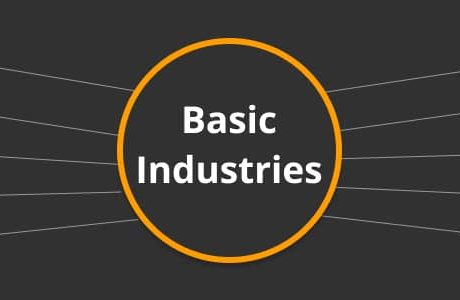Is Oil & Gas Production A Good Career Path in 2021? Choosing oil and gas production jobs can be your best choice because you get handsome salaries at the end of every month.
At the same time, there is a wide range of jobs available in the oil and gas sector. In the United Kingdom alone, there are more than three lakhs of jobs available. So now, you can analyze the strength of the oil and gas production industry.
Moreover, the oil and gas production industry is an innovative place to work in. The industry offers several career opportunities during its entire value succession, be it downstream, midstream, or upstream.
Oil & Gas Production Industry – What You Need To Know?

Every industry has its pros and cons, and the same goes for the oil and gas production industry. However, it is obvious that workplace safety matters a lot for any individual.
Many people think that working in the oil industry may not be safe for everyone. But there is one good piece of news that this sector is paying good attention to workplace safety. The conditions of working in this sector are also great, and you may get all the facilities that you had always wished for.
Besides, the future of the oil and gas industry is bright as it supports more than 9.8 million jobs in the US alone. The pay scale is also great in this sector, and you don’t have to worry about paying your monthly bills.
Best Career Paths In The Oil & Gas Production Industry

The oil and gas production industry is a promising platform where you can grow your future with compensation packages. Now, let’s know the best career paths in the oil and gas production industry.
i). Oil & Gas Attorney
The attorney in this industry is basically involved in the contract formation and reviews that go in the transaction of 2 firms. Here, the main role is to manage the ownership of minerals, royalty, and surface rights relating to a property.
ii). Financial Analyst
Another career path in the oil and gas industry is Financial Analyst. One should be responsible for tracking a company’s performance against a plan, analyzing the market conditions and business performance. They also help to shape the strategic planning of the company.
iii). Logistics Analyst
Another best career path in the oil and gas production industry is Logistics Analyst. Here, the individual is responsible for the complete life cycle of particular products within the company.
iv). Project Engineer
A Project Engineer handles a project from an engineering point of view. Here, you will learn some new skills, explore fresh technologies, and travel across the globe. At the same time, you will get great exposure with high salary rewards.
v). Human Resource
Human Resource is also one of the great career paths in the oil and gas production industry. Here, you need to make sure that the company is managing its employees directly and complying with employment laws.
vi). Derrickman
A derrickman is a branch of the oil drilling rig crew. You need to shoulder the burden of carrying out safe and effective methods of the derrick. This is also a great path that you can consider for yourself.
vii). Geologist
Geologists are liable for getting new reserves of gas and oil and getting much oil and gas out of existing areas. This is one of the great career paths that you can choose in the oil and gas production industry.
Is Oil & Gas Production A Good Career Path?

The answer to this question is Yes. You can choose your career in this particular field or consider other career paths such as energy utilities, basic industries, public utilities, consumer services, hotels/resorts, electric utilities, packaged foods, etc.
Millennials can go for business services if they are not interested in doing a job. There is not a particular position in this sector that will stick with, in fact, lots of opportunities you will get in the long run, and you will enjoy the same for sure.
On the other hand, you would get selected based on your skills and qualifications in the gas production field. Handsome salaries are also paid at the end of the month with high incentives.
The Final Thoughts
Is Oil & Gas Production A Good Career Path? Now, you know why the gas and oil production industry is popular, and many wish to work in the same. The above listed are the top information regarding this sector, and if you come across any doubts, you can mention them in the comment section below.
Read Also:






















